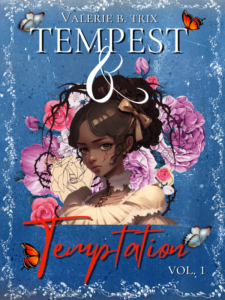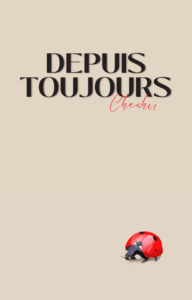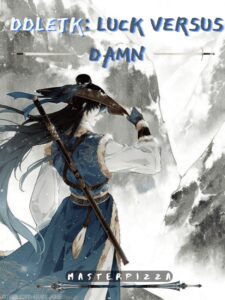I once wrote about why humans can describe a collective fear of darkness and came to the conclusion that it was not the darkness that humans feared, but the lack of certainty in it which became synonymous with darkness. Because there is no distinct feature in darkness besides its darkness, there is nothing in it to fear specifically, and so the fears of the daylight can be collected and condensed into this space without limit. Replace these specific fears with the monolith of darkness, and so fear it.
In this way, having more knowledge can multiply the fear of darkness, the fear of the uncertain. For this knowledge is only further compacted and condensed to suit the obscuring sheet of darkness; to identify a fear is to also extract it from the darkness, not resolving the darkness itself but instead resolving the fear in question.
And in this way, darkness has no true entity, for it is an amalgamation of things that one is reluctant to see by itself. It is a shadow only capable of reflecting its master, of being further condensed when a light of recognition is intensified upon its subject. It is a misleading sentence, therefore, to say that humans have an instinctual fear of the darkness.
I meant that both literally and figuratively when I wrote that piece, but I don’t think it came across well. I find it difficult to say things straightforwardly, since I am so concerned with being misunderstood; I must outline the things I do not want misconstrued first before I explain myself, and in that way, I step on my own toes as I speak. Who am I to predict the reader’s thoughts when I am the writer? No, I suppose that directly makes me the writer. What is there to gain in saying this?
In any case, that was once something that I found interesting: in what ways do we commodify our fears? In what ways do we identify our fears? And is it possible to explore these things through logic of word alone?
Am I right in writing these things out to voice out my curiosities? Or do these writings have the potential to betray its writer, to incite things I as the writer had no intention towards? Can my writing be used to indoctrinate and disillusion the ones who read it to a state of harm?
I know that, at its heart, my writing will be rejected and become an object of contempt for many, but not all. Is that enough for me to stop?
Why do I write? Why do I want to share my world if I so fear and anticipate its rejection?
Well, it can’t be helped if the world sees my writing as something different. I can only blame myself for being insensitive to the times and not recognizing the polarity of the subject matter I was handling. On the one hand, I wish to write as candidly as possible and express my own perspective on life, but on the other, I must also collect an audience and generate an income that I can be proud of. I cannot bear to offend, I cannot bear to give incentive to controversy. With that sentiment, how can I write freely?
I mention all this while thinking about the children’s book, And Tango Makes Three. A short and charming story about penguins that is, quite frankly, not different from any other children’s book that I have ever read in my childhood — just as monotonous and vague and insubstantial as the rest. But, it seems to have been banned in some places in the states?
I can’t give the subject justice, but this present-day news is alarming to me, a writer. What, we’re still banning books for being controversial? Why is a book based on a true story controversial? 70% of the power of a book comes from the readers themselves, you know (I made up that number, don’t mind it), the writer can only do so much to provide the pages for one to take sudden inspiration from. If one is afraid of a book, is it because one truly believes that people will change because of reading one? There’s much more to a process like that, you know, inspiration is all that a book can provide in relation (that, and vocabulary).
Moreover, to have a truly indoctrinating book, there must be several other similar materials that affirm its position in order to exist. Is that what the banning hopes to prevent? More books of penguin families that have been observed in real life? That is both too direct and too vague, no? It is better and more efficient to directly address the content that one feels is unsuitable for the public, but I suppose that the parties in favor of banning the book can recognize the pushback they may receive if they instead had a campaign against any positive illustration of homosexuality. Only in this roundabout way — of first targeting children, of course, as one does — can they find fruit to their efforts.
Still, I don’t understand the topic, and yet I am forced to partake in its discussion, given the nature of my passions. Using the label of children, it’s easy to directly force control and dictate what is right and wrong, since children do not have autonomy in the legal and political world (and yet they are the martyrs, no?), as opposed to directly addressing the groups who can stand and debate. Is this avoidance? Avoidance for the sake of control? It can’t be for the sake of the children, for there are much more pressing procedures and debates to be had if in favor for children’s welfare, things far from the realm of books and more in concern with the financial ecosystem of the country. When it comes to the media and subjects of entertainment, one does not simply affect the children, but all of media and entertainment.
Well, that is a perverse generalization, is it not? All things are interconnected, one problem cannot simply be shuttled to another to make greater sense of it. But this is how I understand it, after all, using a specific matter to make a generalization, set the foundation of media in the future so that it reflects the sentiment of the now, which by then will be the past, setting back history, setting back thoughtful conversation.
I want to know, will my writings exist? Even if I live and die, will my writings be a reflection of what I saw in myself? Or will I, too, be banned for being myself? Suppressed by history written by another hand?







The Souls of Black Folk
Completed